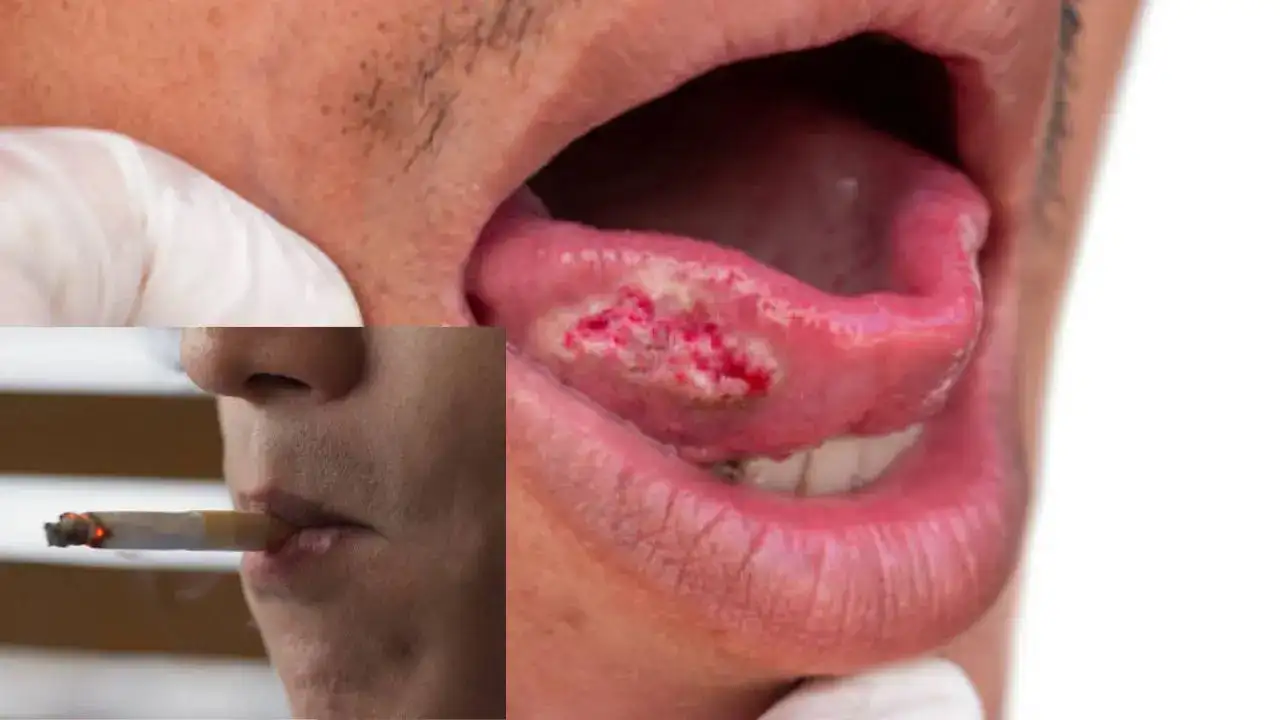
It is important to keep note of the early signs and go to your doctor as ignoring them can further lead to delayed diagnosis and treatment
While smoking and tobacco are major risk factors for many diseases and conditions, the most deadly among them is cancer—specifically oral cancer. All tobacco products - including cigarettes, cigars, pipe tobacco, chewing tobacco, and snuff—contain the following poisonous substances, like carcinogens and nicotine, linked to an increased risk.
However, according to experts, oral cancer is not only an after-effect of smoking. More than 25 per cent of those who develop oral cancer do not smoke or have other known risk factors. There are many myths associated with oral cancer, so understanding the real facts and knowing the truth can save lives.
“While smoking does cause oral cancer, it can still affect those who have never used these products in their entire life,” Dr. Prashant Chandra, surgical oncologist at TGH Onco Life Cancer Centre, told Times Now.
Oral cancer is a type of cancer that starts in the mouth, lips, tongue, gums, or even the back of the throat. “Other risk factors of oral cancer are poor dental hygiene and infections like HPV. People tend to ignore or overlook oral cancer symptoms as a minor inconvenience that may get better over time,” he added.
According to Dr. Chandra, it is important to keep note of the early signs and go to your doctor, as ignoring them can further lead to delayed diagnosis and treatment. “One must understand that the earlier it is found, the better the chances of treatment being more effective and successful,” he said.
Debunking common myths regarding oral cancer
Myth
Only smokers get oral cancer.
Fact
No, it is not just smokers who get oral cancer. Even though smoking increases the risk, non-smokers can also develop this particular type of cancer. A few other factors like HPV, alcohol, or even poor oral hygiene can lead to oral cancer.
Myth
If there is no pain in your mouth, it is not cancer
Fact
You need to understand that the early stage of oral cancer does not show any visible symptoms and is often painless. This is why people tend to ignore it until it worsens, highlighting the importance of routine dental check-ups.
Myth
A mouth ulcer is not serious
Fact
Mouth ulcers are not serious until they last for more than a few weeks. “They are more likely to heal independently, but if it persists for an extended period, one must immediately consult a doctor, as it could be an early warning sign,” said Dr. Chandra.
What is oral cancer?
Oral or mouth cancer is the broad term for cancer that affects the inside of your mouth. While it may look like a common problem with your lips or in your mouth, like white patches or sores that bleed, the difference between a common problem and potential cancer is these changes do not go away.
Doctors say if left untreated, oral cancer spreads throughout your mouth and throat to other areas of your head and neck. Around 63 per cent of people with oral cavity cancer are alive five years after diagnosis. Studies say around 11 people in 100,000 will develop oral cancer during their lifetime, with men being more likely than women to develop oral cancer.
What are the risk factors for oral cancer in your body?
According to doctors, around 75 per cent of those who develop oral cancer have the following habits:
- Using smokeless tobacco products such as chewing tobacco, dip, snuff, or water pipes.
- Regularly drinking excessive amounts of alcohol.
- Spending a lot of time in the sun without protecting their lips with sunblock.
- Having human papillomavirus or HPV
- Having a family history of oral cancer.
Get Latest News Live on Times Now along with Breaking News and Top Headlines from Health and around the world.
